What are the alternatives to electrification?
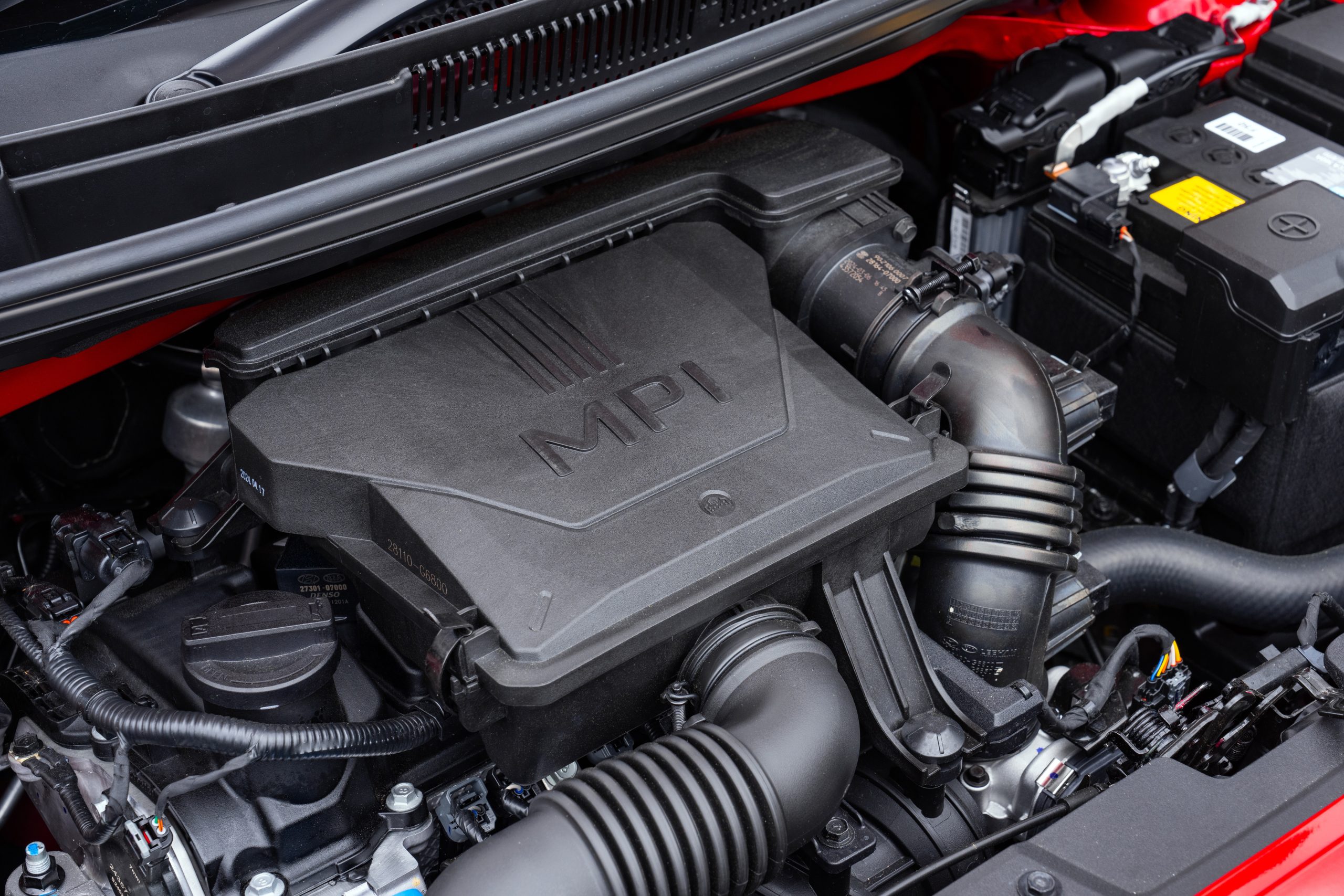
Among the wider world, there's a big focus on climate change and how our impact on the environment can be reduced. In the motoring scene, that means bringing down carbon emissions and putting more weight behind electrification, which is why we're seeing a far greater number of electric vehicles released with each passing month. However, there are some alternatives to electric vehicles that have emerged, but what are they and could they provide us with a cleaner way to get from A to B?
Let's take a look. Smaller, more efficient petrol engines
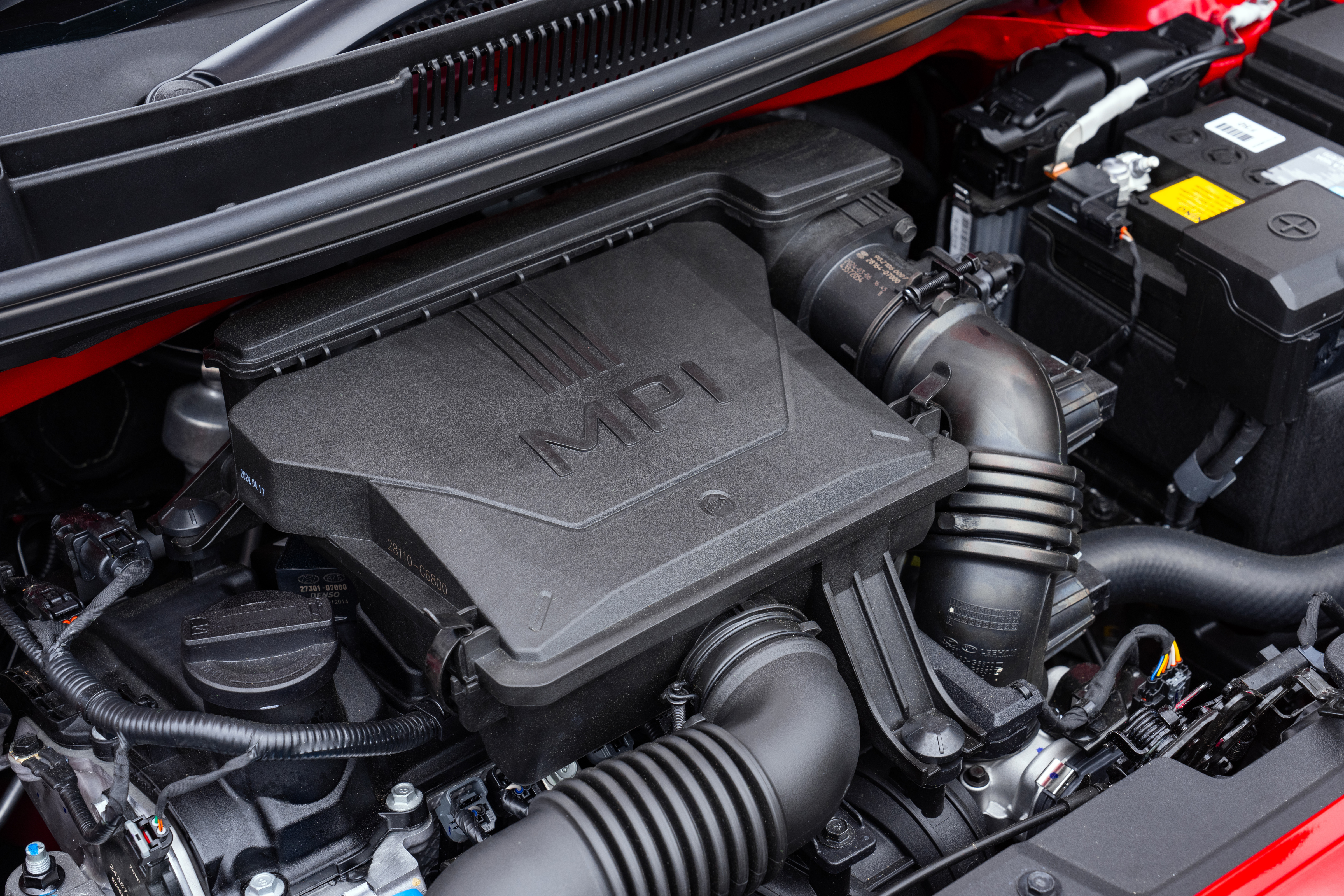 The latest internal-combustion engines are cleaner, greener, lighter and more fuel efficient than ever before. (Kia)
The latest internal-combustion engines are cleaner, greener, lighter and more fuel efficient than ever before. (Kia)
Believe it or not, petrol engines are the most efficient they have ever been. A lot of that comes down to increased development, the wider use of turbochargers and a greater number of smaller-capacity engines which put efficiency right at the top of the list of priorities.
Plus, the integration of mild-hybrid systems into petrol - and occasionally diesel - engines has allowed them to squeeze extra miles out of every drop of fuel. Mild-hybrid technology is becoming more and more popular among car manufacturers as it offers a lot of advantages to greener motoring for not that much more money for the consumer. A car that features the system has a small electric motor installed that is used to recoup lost energy from braking which is then stored and can be used later on to help boost efficiency even further.
With this, the life of the petrol engine in general is being extended. Sustainable fuels
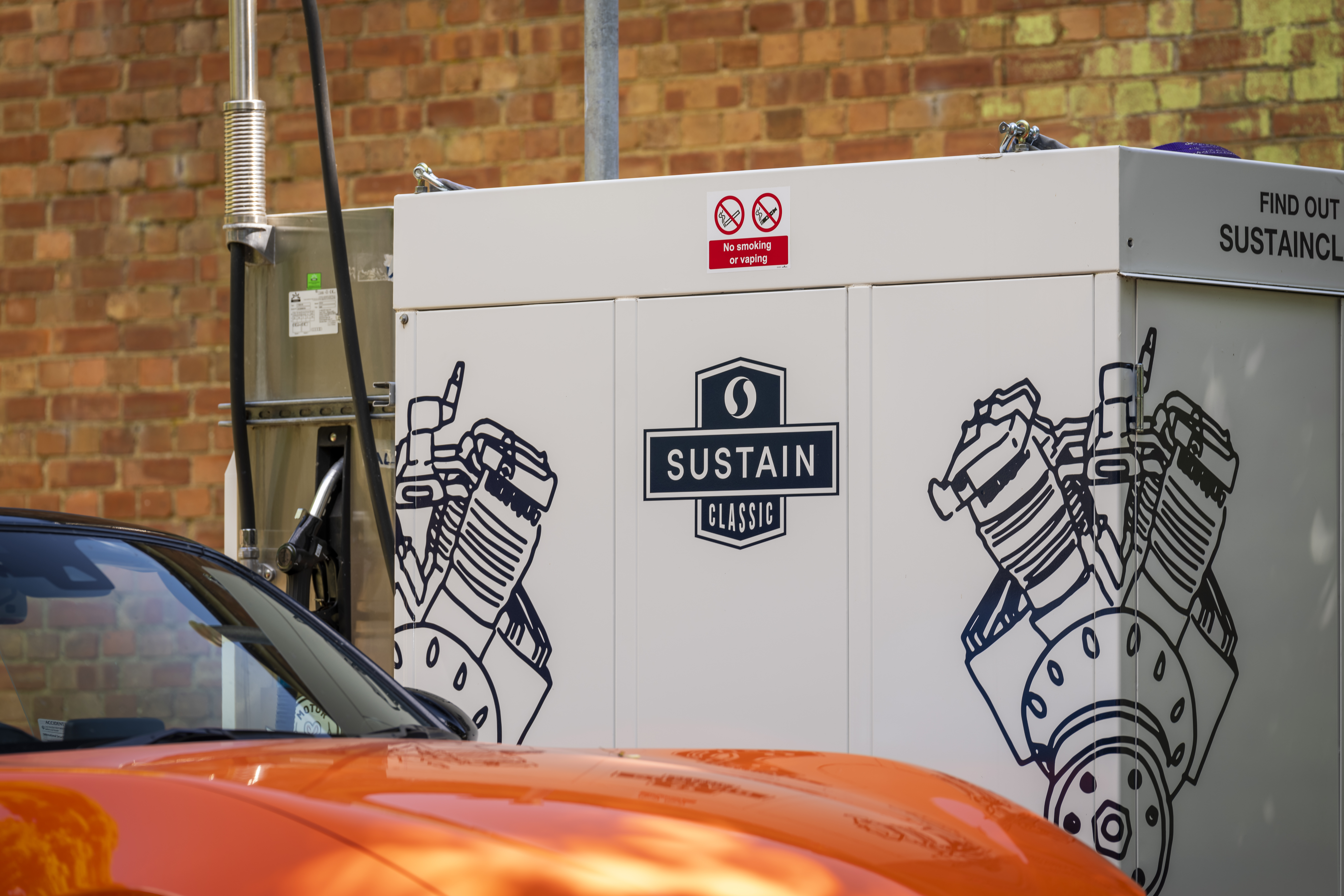 Sustainable fuels can be made out of animal or agricultural waste. (Mazda - Dave Smith)
Sustainable fuels can be made out of animal or agricultural waste. (Mazda - Dave Smith)
Sustainable fuels are made through agricultural or animal waste, which is said to cut CO2 emissions by as much as 80 per cent, according to a 2019 renewable fuel statistics report by the government. Another point to make is that this fuel doesn't need an engine to be modified to any extent in order to run on it.
Plus, existing petrol stations should, in theory, be able to store and deliver sustainable fuels in the same way as 'usual' fuels. E-fuels
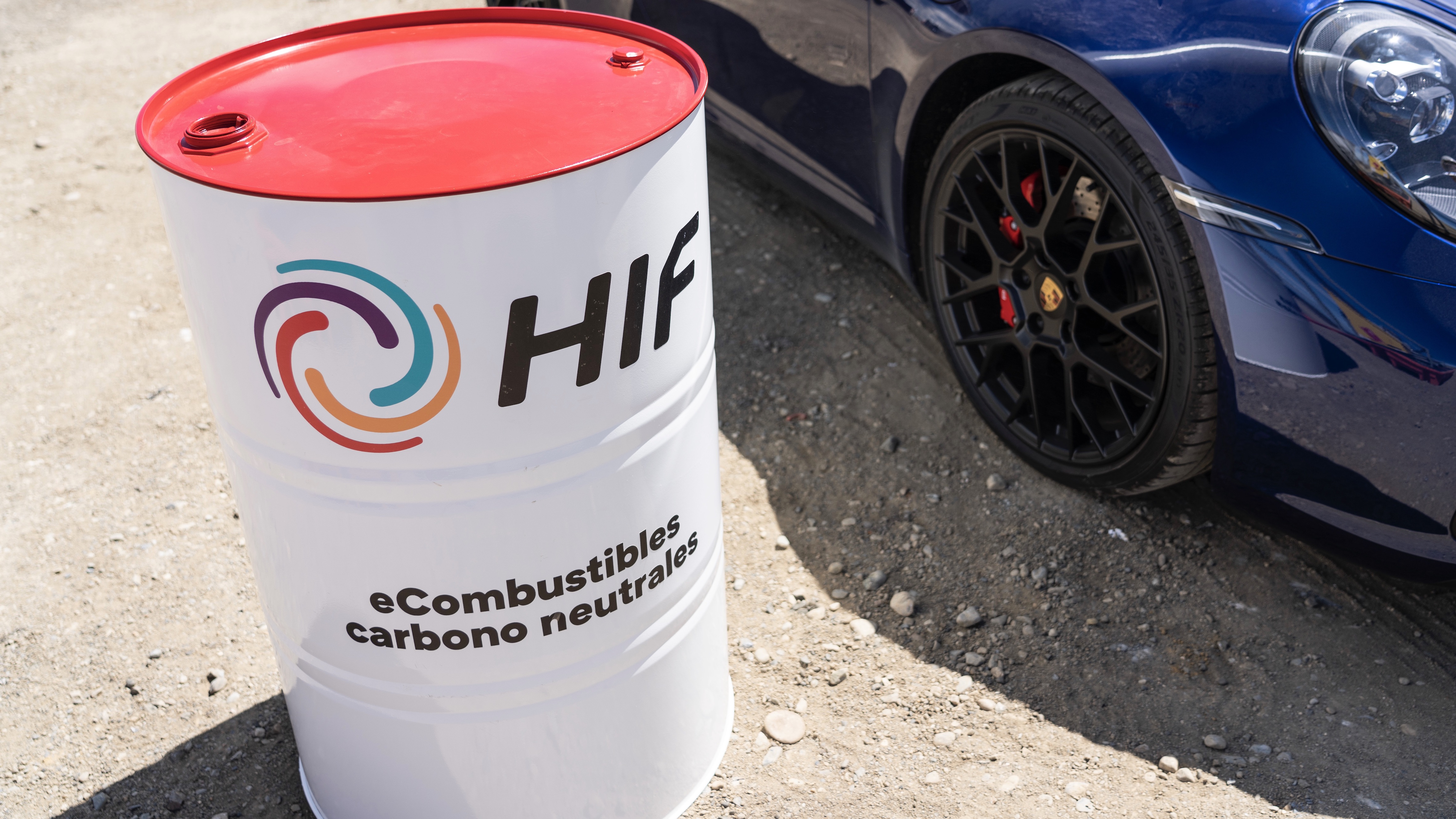 E-Fuels could be the saviour for the internal-combustion engine. (Porsche)
E-Fuels could be the saviour for the internal-combustion engine. (Porsche)
Similar to sustainable fuel, but with different elements involved. Like with the former, E-fuels could play a big part in our transportation emission goals as it offers the same practicality of modern internal-combustion engines with far fewer emissions in the manufacturing process.
E-fuels or synthetic fuels as they are more commonly known as are made from captured CO2 and hydrogen through a process called electrolysis. The benefits are that no fossil fuels are used in the making and as with sustainables it can be easily adapted to our engines and petrol station networks. The only downsides at this stage is the cost - however with more and more litres produced on a global scale, prices per litre will begin to drop.
Porsche is a big believer in synthetic fuels and has already created a production site in Chile where it will manufacture its own e-fuels. Hydrogen fuel cell
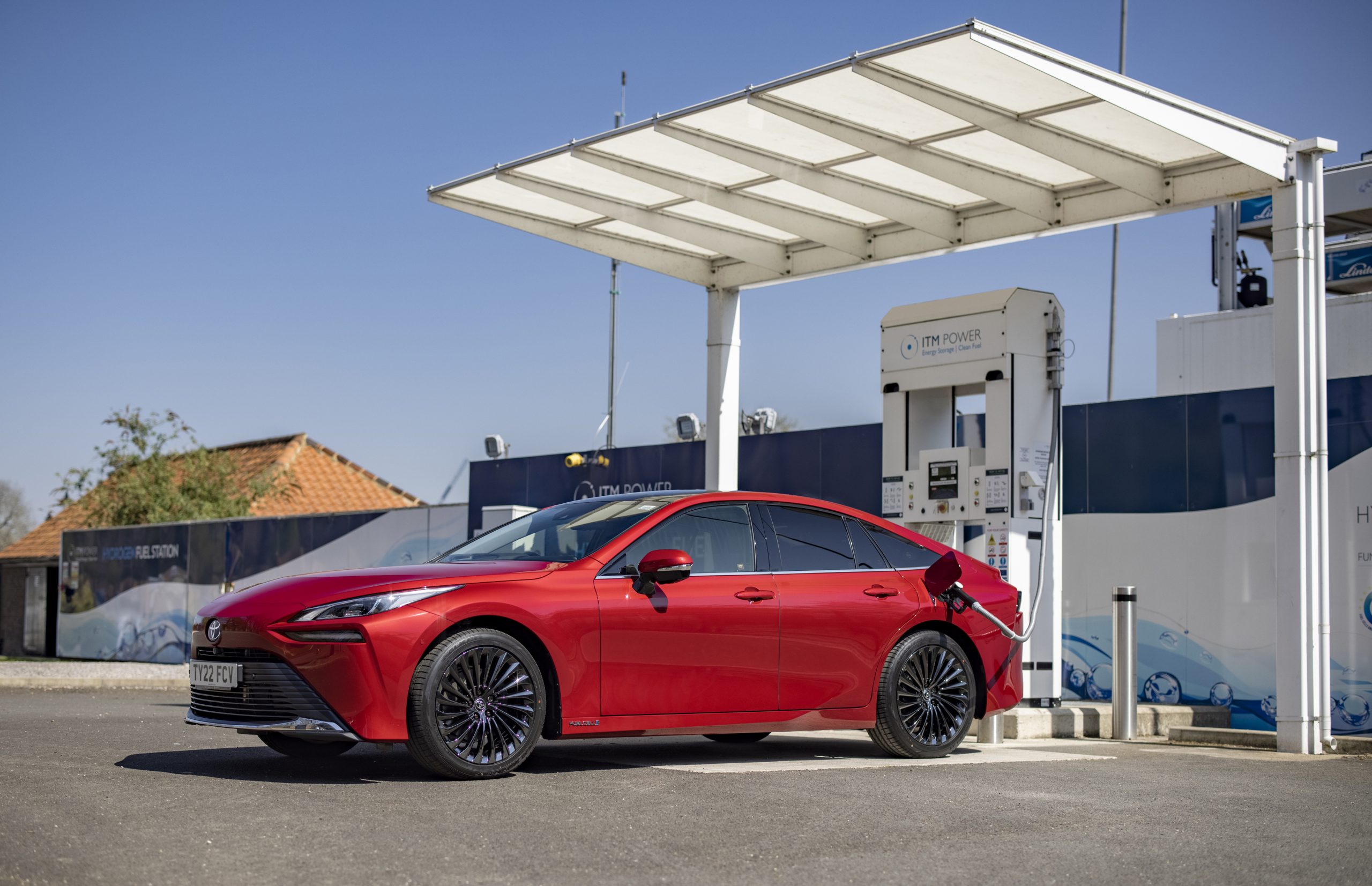 The Toyota Mirai is only one of two cars available in the UK with a hydrogen fuel cell powertrain. (Toyota)
The Toyota Mirai is only one of two cars available in the UK with a hydrogen fuel cell powertrain. (Toyota)
What is seen as the EVs biggest rival is the hydrogen fuel cell electric vehicle. This alternative could play a massive part in the future, however here in the UK it hasn't taken off due to the high costs of the cars that feature a fuel cell drivetrain and the lack of infrastructure.
One of the big benefits of a hydrogen car is its by-product of only water, while a full fill-up of hydrogen only takes slightly longer than that for a petrol or diesel car. The powertrain consists of an electric motor and a fuel cell. The hydrogen is the substance and then is mixed with air which is fed into the fuel cell which then makes an electrochemical reaction which turns into electricity, heat and water vapour.
Hydrogen internal combustion
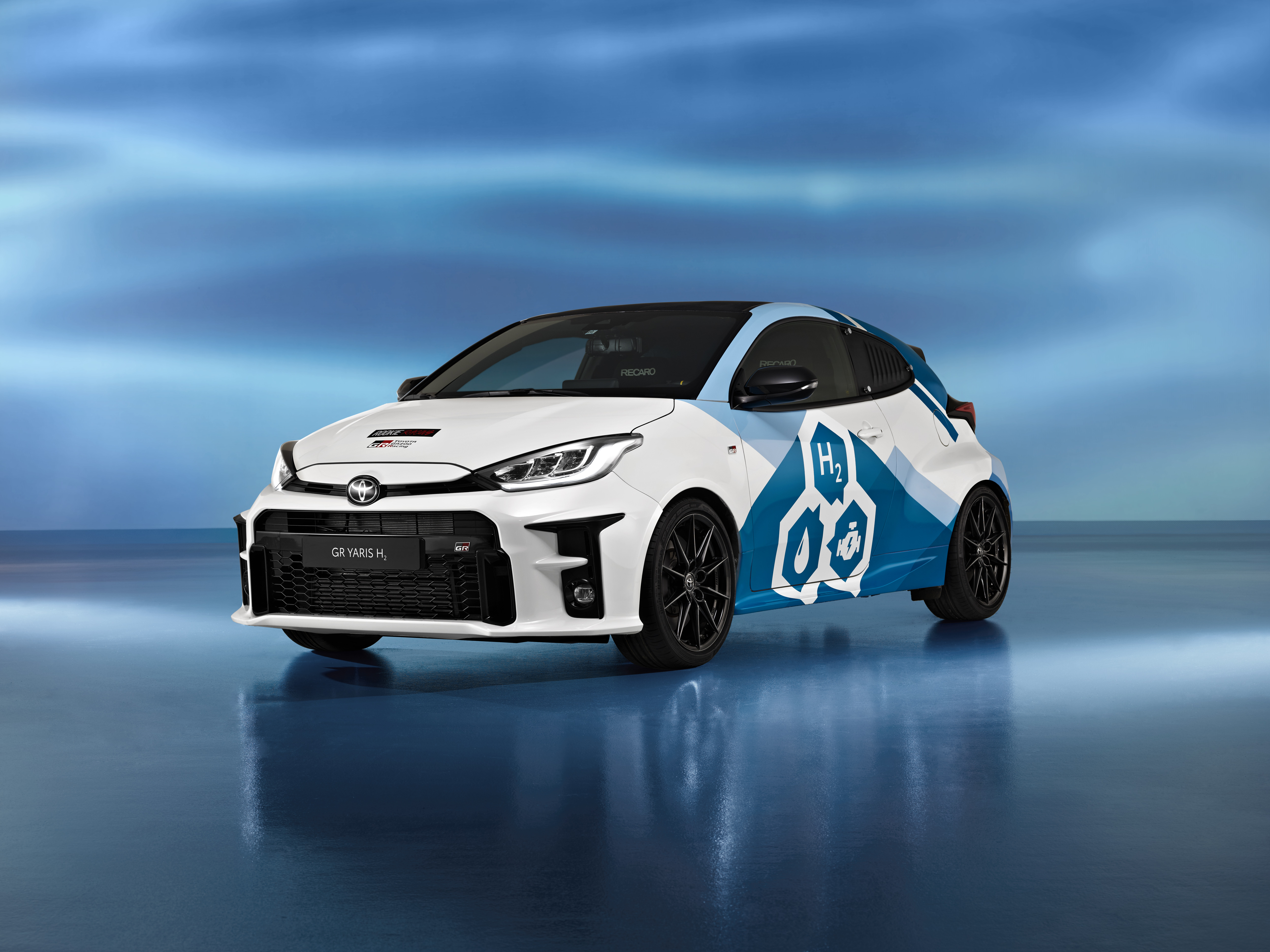 The GR Yaris H2 concept has an internal-combustion engine that runs on hydrogen. (Toyota)
The GR Yaris H2 concept has an internal-combustion engine that runs on hydrogen. (Toyota)
Car companies such as Toyota are undertaking the development of the internal combustion engine that we all know, but fueling it with one of the most abundant elements in the universe - hydrogen. The firm has also competed in the Super Taikyu 24-hour race at Fuji Speedway last year to see if the technology could move on to motorsport, too. Currently in its development stage, passenger models such as the GR Yaris and Corolla Cross (not available in the UK) are being put through their paces to see whether this technology could work as a traditional fuel of the future.
Furthermore, like with fuel cell vehicles, the only emissions created is water vapour, meaning that this alternative gives all of the benefits of a normal engine with none of the drawbacks.